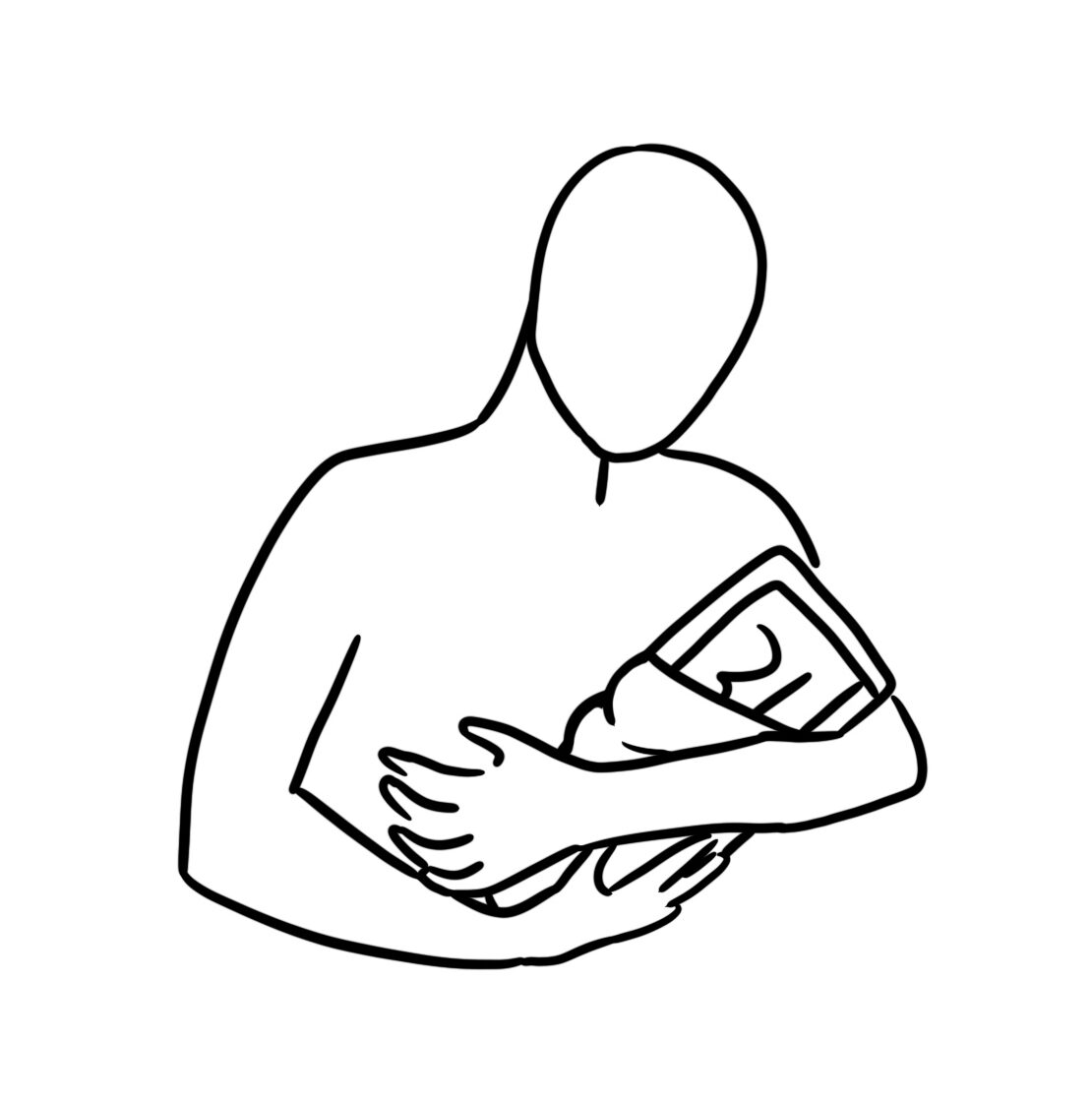How far?
October 31, 2025
 Kiran Elfenbein
Kiran ElfenbeinI am mildly obsessed with my Google Calendar. The tab on my computer feels almost like a baby I take care of, filling its bottle with my daily activities and coddling it through constant rearrangement, ultimately building some future. Yet, I deviate from this dedication almost as much as I abide by the color-coded chunks of time, because my calendar is less of a living baby and more of a baby doll that I hold onto when I need comfort. It is a fundamental truth that life is simply unpredictable, so we can use planning to cope with this larger lack of control. But do we not lose the precious present moments of now when we are so focused on the future? Perhaps I am the underdeveloped baby, and my calendar is my mature mother. But enough with the metaphor.
Since coming to Bowdoin, my dependence on planning has grown dramatically. Piecing together the puzzle of my day and all the tasks I must complete brings me a unique satisfaction, even if the puzzle eventually falls apart and I lose half of the metaphorical pieces. Nevertheless, the high of once having a plan pulls me through to the next day. Over and over again, my life certainly follows my calendar, placing me at my internship, in class, at work.
At the same time, it has become more difficult to be present in my life. Existence is more than going from one place to another and plotting out each step of the way. Bowdoin stresses academic and self exploration, particularly in our first years. Yet, in a culture where many internships for summer 2026 have already closed their applications, there is an inherent pressure to know what you want and where you’re going so you can take advantage of fleeting opportunities. Perhaps the only way to find all these answers is in the now rather than the hypothetical.
I often push past the bounds of what might be healthy planning and lose myself ten years down the line in some unknown grocery store in some unknown town with some unknown partner bagging some unknown foods—probably hummus. This attempt to plan some abstract unknown helps ease the pressure of the present. I am escaping into the future as each day passes, and by daydreaming about it, I can evade the present. Planning can be used as a coping mechanism to create control and generate focus, but such comfort must be moderated.
When I was 16 and fell in love for the first time, I lost a degree of control over my life. When the love felt too serious, I broke up with her under the terms of our relationship not fitting into what I wanted. My strongest desire was to focus on college applications and the construction of my future. Romantic love was too strong for me to concentrate on these futuristic goals, so I subconsciously regained control by devaluing love.
While these reflections are important, they cannot be overdone. If I stayed bogged down in the past, reflecting on all the love I once had, I would miss chances to catch it again. No regrets, but I don’t actually believe that you need to snip away love in order to focus on your future. At the same time, if you draw yourself too far away into the future, you ignore all present possibilities.
Philosopher Alain Badiou believes that true love is when you see life through the perspective of yourself and of your lover. Risk is central, since Badiou sees love as a unique trust in chance. So, if planning minimizes risk, perhaps we should plan less. The two work together, though, as planning in itself is a risk, and the only real certainty is uncertainty.
But I’ve never planned to fall in love, and I’ve never crafted plans to make others fall in love with me. It just happens. Last year, I found myself getting dinner with the same group of friends every night. Two of them lived on my floor. We each naturally fit into the lives we were all building here at Bowdoin. When I was a little senior in high school, I could not have plotted out any of these relationships because they were organic. Also, I briefly got back together with the girl I dumped for the future. So what does that say about predictability, even when you enforce a plan?
These friends have never been represented by blocks of time in my calendar. They aren’t tasks, and they aren’t easily enough forgotten. Our close proximity and consistent quality time may have set us up to love each other, but the early morning knocks and late night shower talks made love flourish. Our memories together come back to me as experiences that were built off of uncertainty. And while planned meals and excursions helped, the true adventure of being a first year connects us in a way that no plan or schedule ever could.
When I break away from my schedule, I embrace the present and plant natural seeds for the future I otherwise could not. We must sacrifice our grip on planning for the future in order to experience the present. In doing so, true comfort is gained with the heightened value of life’s most important things, like love. It’s better if my Google Calendar remains just a tool, so maybe someday I can have a real baby. But there’s little point, at 19, in thinking that far ahead.
Eve Foley is a member of the Class of 2028.

Comments
Before submitting a comment, please review our comment policy. Some key points from the policy: